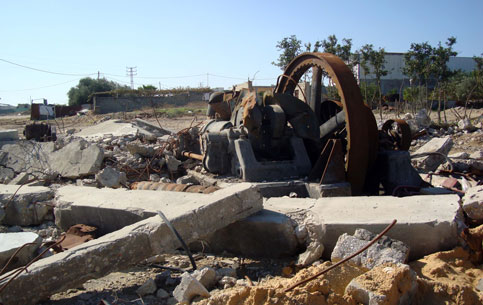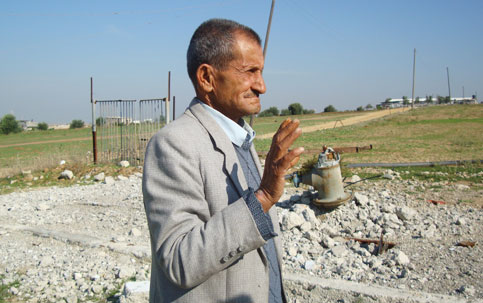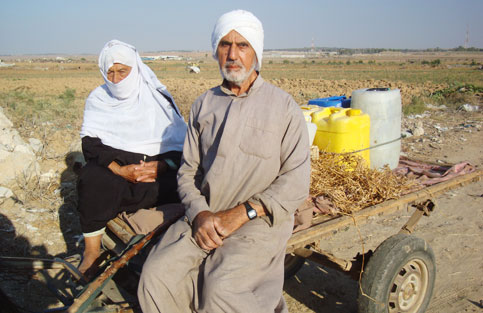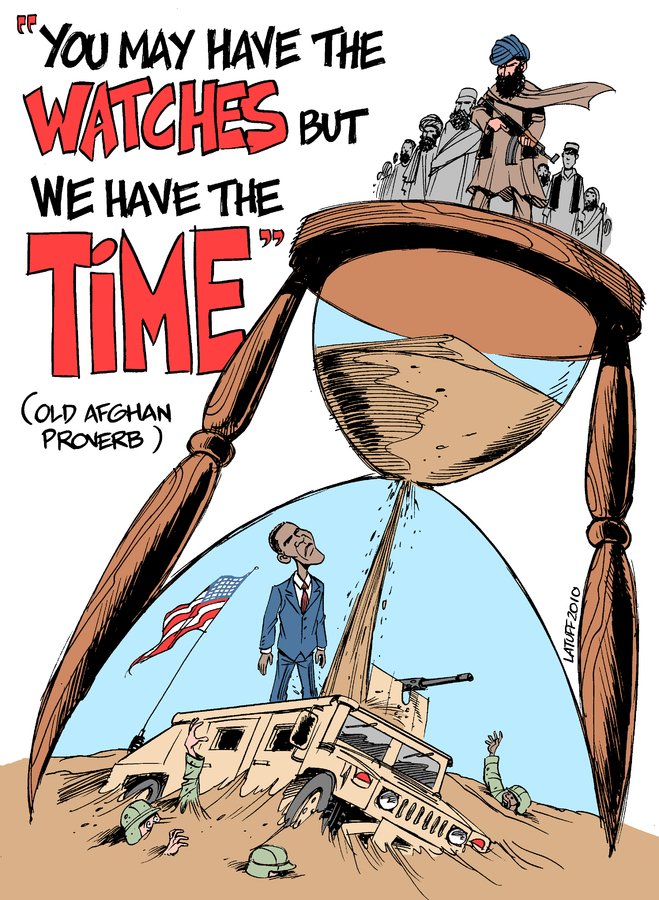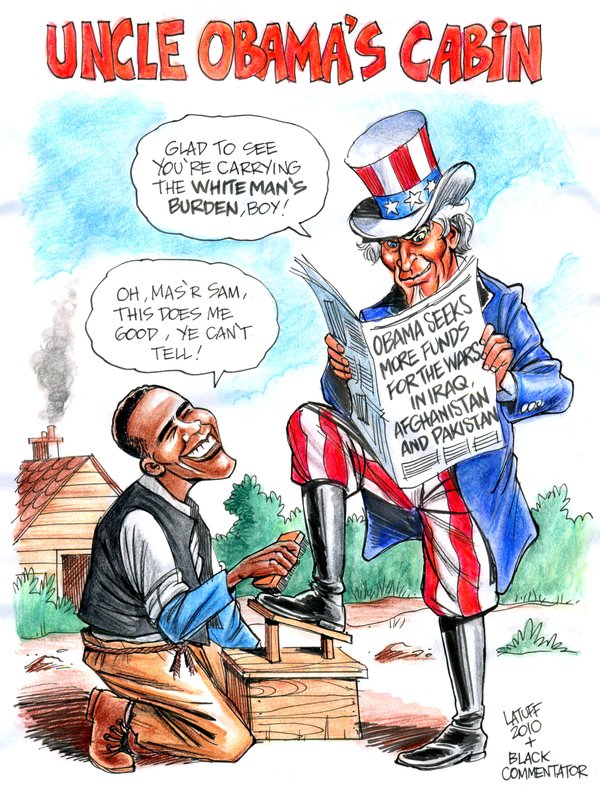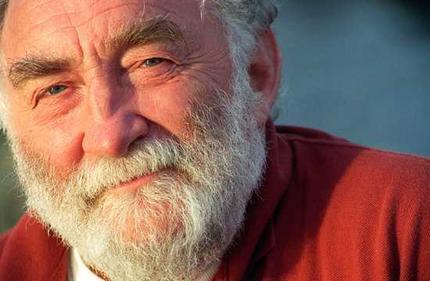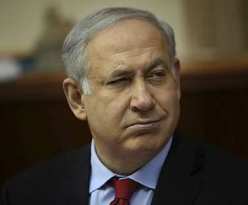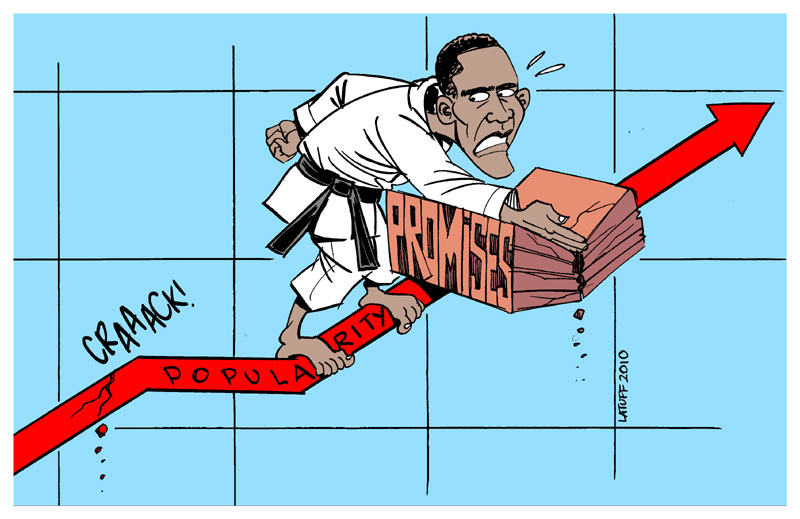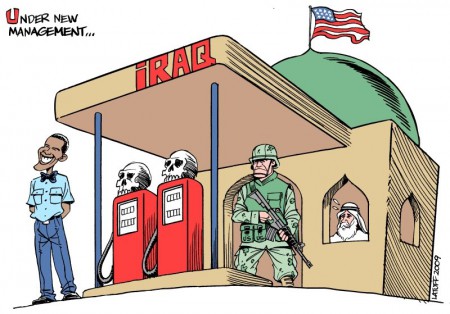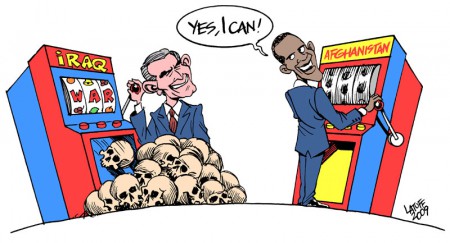
So, why is Israeli economy so strong? It is no miracle, it is based on pillage, theft, brutality and illegality:
Jerusalem – Over the past four decades Israel has defrauded Palestinians working inside Israel of more than US$2 billion (Dh7.4bn) by deducting from their salaries contributions for welfare benefits to which they were never entitled, Israeli economists revealed this week.
A new report, “State Robbery”, says the “theft” continued even after the Palestinian Authority was established in 1994 and part of the money was supposed to be transferred to a special fund on behalf of the workers.
According to information supplied by Israeli officials, most of the deductions from the workers’ pay were invested in infrastructure projects in the Palestinian territories – a presumed reference to the massive state subsidies accorded to the settlements.
Nearly 50,000 Palestinians from the West Bank are working in Israel – following the easing of restrictions on entering Israel under the “economic peace” promised by Benjamin Netanyahu, the Israeli prime minister – and continue to have such contributions docked from their pay.
Complicit in the deception, the report adds, is the Histadrut, the Israeli labour federation, which levies a monthly fee on Palestinian workers, even though they are not entitled to membership and are not represented in labour disputes.
“This is a clear-cut case of theft from Palestinian workers on a grand scale,” said Shir Hever, a Jerusalem-based economist and one of the authors of the report. “There are no reasons for Israel to delay in returning this money either to the workers or their beneficiaries.”
The deductions started being made in 1970, three years after the Israeli occupation of the Palestinian territories began, when Palestinian workers started to enter Israel in significant numbers, most of them employed as manual labourers in the agriculture and construction industries.
Typically, the workers lose a fifth of their salary in deductions that are supposed to cover old age payments, unemployment allowance, disability insurance, child benefits, trade union fees, pension fund, holiday and sick pay, and health insurance. In practice, however, the workers are entitled only to disability payments in case of work accidents and are insured against loss of work if their employer goes bankrupt.
According to the report, compiled by two human rights groups, the Alternative Information Centre and Kav La’Oved, only a fraction of the total contributions – less than eight per cent – was used to award benefits to Palestinian workers. The rest was secretly transferred to the finance ministry.
The Israeli organisations assess that the workers were defrauded of at least $2.25bn in today’s prices, in what they describe as a minimum and “very conservative” estimate of the misappropriation of the funds. Such a sum represents about 10 per cent of the PA’s annual budget.
The authors also note that they excluded from their calculations two substantial groups of Palestinian workers – those employed in the Jewish settlements and those working in Israel’s black economy – because figures were too hard to obtain.
Mr Hever said the question of whether the bulk of the deductions – those for national insurance – had been illegally taken from the workers was settled by the Israeli High Court back in 1991. The judges accepted a petition from the flower growers’ union that the government should return about $1.5 million in contributions from Palestinian workers in the industry.
“The legal precedent was set then and could be used to reclaim the rest of these excessive deductions,” he said.
At the height of Palestinian participation in the Israeli labour force, in the early 1990s, as many as one in three Palestinian workers was dependent on Israeli employers.
Israel continued requiring contributions from Palestinian workers after the creation of the Palestinian Authority in 1994, arguing that it needed to make the deductions to ensure Israeli workers remained competitive.
However, the report notes that such practices were supposed to have been curbed by the Oslo process. Israel agreed to levy an “equalisation tax” – equivalent to the excessive contributions paid by Palestinians – a third of which would be invested in a fund that would later be available to the workers.
In fact, however, the Israeli State Comptroller, a government watchdog official, reported in 2003 that only about a tenth of the money levied on the workers had actually been invested in the fund.
The finance ministry has admitted that most of the money taken from the workers was passed to Israeli military authorities in the Palestinian territories to pay for “infrastructure programmes”. Hannah Zohar, the director of Kav La’Oved who co-authored the report, said she believed that the ministry was actually referring to the construction of illegal settlements.
The report is also highly critical of the Histadrut, Israel’s trade union federation, which it accuses of grabbing “a piece of the pie” by forcing Palestinian workers to pay a monthly “organising fee” to the union since 1970, even though Palestinians are not entitled to membership.
Despite the Histadrut’s agreement with its Palestinian counterpart in 2008 to repay the fees, only 20 per cent was returned, leaving $30m unaccounted for.
The Histadrut was also implicated in another “rip-off”, said Mr Hever. It agreed in 1990 to the Israeli construction industry’s demand that Palestinian workers pay an extra two per cent tax to promote the training of recent Jewish immigrants, most of them from the former Soviet Union.
Mr Hever said that in effect the Palestinian labourers were required to “subsidise the training of workers meant to replace them”. The funds were never used for the stated purpose but were mainly issued as grants to the families of Israeli workers.
In one especially cynical use of the funds, the report notes, the money was spent on portable stoves for soldiers involved in Israel’s three-week attack on Gaza last year.
In response, the finance ministry called the report “incorrect and misleading”, and the Histadrut claimed it was “full of lies”. However, neither provided rebuttals of the report’s allegations or its calculations.
Mr Hever said the government body responsible for making the deductions, the department of payments, had initially refused to divulge any of its figures, but had partly relented after some statistics were made available through leaks from its staff.
Assef Saeed, a senior official in the Palestinian Authority’s labour ministry, said the PA was keen to discuss the issue of the deductions, but that talks were difficult because of the lack of contacts between the two sides
A parliamentary investigation could lead to the dismantling of some rights groups accused of undermining the legitimacy of Israel’s government by documenting alleged misconduct by Israeli forces during last year’s Gaza war.
Tel Aviv — As the United Nations prepares to decide what action to take on the Goldstone report, which alleges Israeli misconduct in last year’s Gaza war, local human rights groups and their backers are facing a rising tide of domestic criticism for fomenting international scrutiny of Israel and its military.
A center-right group, “Im Tirtzu,” issued a report last week charging that the Goldstone report relies on documentation from 16 local rights organizations that were vocal critics of Israeli conduct during the war. The report singled out a common financial thread, the multimillion-dollar New Israel Fund, which raises money among American Jews and foundations for progressive causes.
That sparked a drive in the Israeli parliament to approve an investigation to determine whether the work of those nonprofits undermines Israel’s legitimacy. The investigation could lead to the outlawing of some groups.
The sponsor of the inquiry proposal, Knesset Member Otniel Schneller from the centrist Kadima party, accused the groups of “the worst incitement possible” against Israel. “Most of the quotes in the [Goldstone] report against Israel come from Israeli organizations,” he said. “They are accusing Israel of terrorizing [Palestinian] civilians.”
The Goldstone report assigns blame to both Israel and Hamas for committing possible war crimes during the war, but accuses Israel of intentionally killing Palestinian civilians and of destroying civilian infrastructure in the Gaza Strip.
Israel says the report reflects political bias, anti-Semitism, and an effort to rob the Jewish state of the right to self-defense against attacks on its citizens. In the coming weeks and months, the United Nations Security Council will decide whether to refer the findings to the International Criminal Court.
How much can you criticize government?
The campaign against the rights groups is sparking a debate over the limits of legitimate criticism of the government.
“We believe there are valid concerns with regard to Israel’s conduct during [the war]. We believe the Israeli public has the right to know what was done in our name in Gaza,” says Haggai Elad, the director of the Association for Civil Rights in Israel, a beneficiary of the New Israel Fund. “If the [parliament] is intent on holding hearings in the 21st century that are reminiscent of the anti-Communist hysteria in the United States of the 1950s, then that is a sad moment for Israeli democracy.”
Im Tirtzu, which is funded by Christians United for Israel, a group founded by US evangelical John Haggee, said the New Israel Fund affiliates had a “significant influence” on the crafting of the Goldstone report, and that most of its accusations against Israel were sourced to the rights groups.
“These organizations are trying to help Hamas in [its] fight against Israel,” argues Im Tirtzu chairman Ronen Shoval. “They are slandering the State of Israel and the Israeli soldiers around the world.”
DUBAI — The Israeli prime minister would be at the top of the wanted list if the Israeli foreign intelligence service, Mossad, is behind the killing of a senior Hamas official who was found dead in a hotel in the city last month, the chief of Dubai Police said today.
Lt Gen, Dahi Khalfan Tamim told The National: “Benjamin Netanyahu, the Israeli prime minister, will be the first to be wanted for justice as he would have been the one who signed the decision to assassinate [Mahmoud] al Mabhouh in Dubai. We will issue an arrest warrant against him.”
He did not, however, assert that Mossad was definitively responsible for the killing.
Lt Gen Tamim had said the method used to kill Mr al Mabhouh, was a “Mossad method” but did not elaborate.
He added that Mossad “has carried out operations” in the past using similar procedures. Dubai Police had also earlier said only that the involvement of Mossad could not be ruled out.
Marian Houk, 5 February 2010
Citing “security reasons” — the ubiquitous and unanswerable catch-all phrase against which it is almost impossible to mount any defense — Israel’s Ministry of the Interior has just issued a six-month travel ban on map expert Khalil Tafakji.
Tafakji, like almost all other Palestinians in occupied East Jerusalem, is a “permanent resident,” but not a citizen of Israel.
He is frequently interviewed as an expert on Al-Jazeera satellite channel, as well as on Palestinian television and other media. He said in a phone interview on 4 February that he had just returned 20 days previously from a tour of a number of countries, from Tunisia to Turkey to India, during which he spoke about the problems facing Palestinians because of Israeli policies in East Jerusalem. “You know I am not a political man,” Tafakji said today. But, this is a place where even ordinary, everyday life becomes political.
However, Tafakji has been called the Palestinian Authority’s chief geographer and said he did not know of any other person who has been handed such a travel ban.
Tafakji, surprised at the development, said that “Yesterday they [Israeli authorities] called me and said come to Moskobiyya [the “Russian Compound” security complex in West Jerusalem] — Room 4. They said ‘This is an order, sign it, you have 14 days to make an objection. It is forbidden for you to travel from today for six months.'”
[[When asked if he will contest the travel ban,]] Tafakji said that he has been in constant consultation with lawyers, who have all said that since the explanation he was given was only the generic — but all-encompassing — “security reasons,” it is almost hopeless to contest.
Tafakji was not given any other restriction, he said.
“We are trying, through relations with Jordan and Egypt, America, Britain and France, to see if we can do anything” to remove the restriction, Tafakji said. He told the privately-owned and operated Maan News Agency in Bethlehem that “I am a peace man,” and noted that he worked as a cartographic expert with Palestinian delegations to peace talks since they began in the early 1990s.
He also worked with the late PLO leader in Jerusalem, Faisal Husseini, who had set up the Arab Studies Society in 1983 and established an important center for services in the Orient House, the Palestinian headquarters in East Jerusalem forcibly closed by Israel in 2001. Tafakji heads the Arab Studies Society’s Mapping and Geographic Information Systems (GIS) Department, which has relocated to Dahiet al-Bariid, just beside Israel’s wall, but with full access to Jerusalem.
Marian Houk is a journalist currently working in Jerusalem with experience at the United Nations and in the region. Her blog is www.un-truth.com.
Israel’s vicious counter-campaign against the UN fact-based report on its war on Gaza continues as the time approaches when further action will be considered, writes Amira Howeidy
On Monday, 1 February, the Israeli media reported that the commander of the Israeli army’s Gaza division, Brigadier General Eyal Eizenberg, and the commander of the Givati Brigade, Colonel Ilan Malka, were “disciplined” for authorising the shelling of a United Nations facility with white phosphorous during Israel’s war on the Gaza Strip that started in December 2008 and lasted for 22 days.
During that onslaught the Israeli military killed more than 1,400 Palestinians, and wounded or maimed approximately 5,000. Israel destroyed at least 2,000 buildings in addition to significant sectors of Gaza’s infrastructure. Besieged by the Israeli occupation since June 2007, the Strip’s 1.5 million population is denied construction material — in addition to adequate food, medical and energy supplies — and has not been able to repair the damage since.
Known as Operation Cast Lead, the Gaza assault was Israel’s seventh and latest war in the region. It stands out for its shocking brutality. The Israeli army’s liberal use of white phosphorous munitions in densely populated areas meant that hundreds of Palestinian civilians were subject to the lethal chemical that burns flesh to the bone once in contact with oxygen.
Doctors operating in Gaza at the time also pointed to mounting evidence that Israel used DIME, an experimental explosive biological weapon created by the US air force and that is packed with tungsten dust that forms a micro-shrapnel cloud upon detonation. Gaza hospitals spoke of the “clean tearing of limbs” that DIME can cause, according to the Christian Science Monitor on 14 January 2009. Unfortunately for Israel much of the gruesome scene was captured on camera, drawing international outrage.
A year later, Israel has decided that only two military officers should be “disciplined” for the offensive, which was described by a UN fact-finding mission last September as amounting to “war crimes” and “crimes against humanity”. In fact, had it not been for the UN Human Rights Council (UNHRC) that formed a team of pioneering legal figures to investigate war crimes in Gaza and Israel during the 22-day military operation, it is unlikely that Israel — an occupying power with a record of brutality and impunity — would have probed its own war.
Ever since the UNHRC passed in February 2009 a resolution to dispatch an independent mission to investigate the war, Israel has continued to attack the council. The UN Goldstone Mission, named after its head, South African judge Richard Goldstone, formed in April 2009 by the UN high commissioner for human rights, was lambasted by Israel as “political”, despite Goldstone being a former member of the South African Constitutional Court, a former chief prosecutor of the international criminal tribunals for the former Yugoslavia and Rwanda, and also Jewish and a self-proclaimed “Zionist”.
When it came to the work of investigation, the Goldstone Mission was repeatedly denied entry to Israel, the latter having declared officially that it would “not cooperate” with the fact-finding effort, forcing Goldstone to work via public hearings that included Israeli and Palestinian victims alike. The outcome was a damning report submitted to the UNHRC on 29 September 2009. Although it accused both Israel and the Islamic resistance movement Hamas of “possibly” committing war crimes and crimes against humanity, the report contained an analysis of 36 specific incidents in Gaza compared to only a few in the West Bank and in Israel. In other words, the 575- page long report was mainly and primarily about Israeli, not Palestinian war crimes.
Upon release, Israel immediately mounted a vigorous campaign to defame the report’s conclusions. But an emergency meeting by the UN General Assembly in November endorsed the report’s recommendations nonetheless. It recommended that if Israel and Hamas fail to investigate the alleged violations and undertake follow-up actions that meet international standards of objectivity within six months, then the Security Council should consider referring the whole issue of Israeli and Hamas violations to the prosecutor of the International Criminal Court (ICC) in The Hague.
International human rights organisations such as Amnesty and Human Rights Watch both issued reports on the Gaza war, equally condemning Israel and to a much lesser degree Hamas. Now that the Goldstone deadline is approaching, the Israeli government — which refused to recognise the Goldstone Report and described it as politically motivated — has sent a 46-page report to the UN secretary-general, submitted on 29 January, explaining the Israeli judicial system. The Israeli communiqué included information on an internal Israeli inquiry into some of the accusations in the Goldstone Report, and defended the Israeli army’s performance during the war.
Parallel to this, an active pro-Israel (Western) media campaign surfaced during the past week that accused Goldstone of anti- Semitism, bringing Holocaust Remembrance Day (27 January) into the affair. Reuters quoted Yuli Edelstein, a minister in the Israeli cabinet, as saying he was going to meet UN Secretary-General Ban Ki-Moon on the day of remembrance to suggest that the Goldstone Report had triggered recent attacks on Jews worldwide. Recent narratives alluding to the report, such as that of Israeli political commentator Alan Dershowitz in the popular US Huffington Post newszine, claimed that Israel went to “extreme lengths to avoid civilian causalities… in a manner that put Israeli soldiers at considerable risk.”
The Palestinian Authority submitted its response to the Goldstone Report on 29 January. According to the London-based Al-Quds Al-Arabi newspaper, Hamas will submit its 52-page long response before the deadline for doing so of 5 February.
His political credibility wagered on the peace process, Palestinian President Abbas is not coping well with Israel’s perpetual intransigence, writes Khaled Amayreh in Ramallah
With the Obama administration effectively reneging on pledges to get Israel to freeze settlement expansion in the West Bank, or even abide by the outdated “roadmap” peace plan, Palestinian Authority (PA) leader Mahmoud Abbas is finding himself in an increasingly unenviable position.
Abbas had been insisting all along that he wouldn’t agree to resume talks with Israel unless the latter agreed to halt settlement expansion in the occupied territories, including East Jerusalem. However, in recent weeks, the Palestinian leader has been signalling that he may return to the negotiating table virtually without conditions.
In an interview that appeared on Sunday 31 January on The Guardian website, Abbas was quoted as saying that he would be prepared to resume face-to- face talks with Israel if the latter froze all settlement construction for three months and accepted the borders of 4 June 1967. “These are not preconditions; they are requirements in the roadmap. If they are not prepared to do that, it means they don’t want a political solution.”
The Israeli government rejected the Palestinian proposal, calling it “unrealistic” and “unacceptable”. Responding to the proposal, Mark Regev, advisor to Israeli Prime Minister Binyamin Netanyahu, resorted to red herring tactics, arguing that the Palestinians were still short of their roadmap obligations. Regev cited the issue of “incitement”, as if Palestinians were expected to sing hymns of praise whenever Israel killed their brethren and demolished their homes.
Earlier, it was reported that Abbas was considering proposals presented by US Middle East Envoy George Mitchell for “proximity” or “indirect” talks. Mitchell proposed that he travel between Ramallah and occupied Jerusalem, relaying messages between the two sides on various core issues, including borders, East Jerusalem, settlements and the refugees. The proposal was part of a “package of inducements” that would also include the release of an unspecified number of non-Islamist prisoners from Israeli detention camps.
However, the reported package contained no undertaking to freeze settlement expansion or even halt the growing pace of Arab home demolitions in occupied Jerusalem and the so-called “Area C” of the West Bank where the Israeli occupation army maintains full security and civilian authority. This area, which covers the bulk of the Palestinian countryside, constitutes more than 65 per cent of the occupied territories.
PA spokesmen are denying that Abbas is retreating from his earlier stand with regards to settlements. Ghassan Al-Khatib, a former cabinet minister and now head of the PA Government Press Office, said he didn’t think Abbas was no longer demanding a settlement freeze. Al-Khatib told Al-Ahram Weekly that Abbas was consulting with Arab leaders on the expediency of resuming the peace process with Israel in a manner that would bring maximum benefit for the Palestinian cause.
Al-Khatib defended the idea of “proximity” talks whereby the Americans would shuttle between Israel and Arab capitals to relay respective positions to the sides. “This is not necessarily a bad idea. The Americans would be witnesses and Israel wouldn’t be able to fabricate lies as to who is to blame for the failure of talks, as was the case in past failed talks.”
Some voices at the Palestinian arena have lately accused Abbas of seeking Arab cover to resume the “futile” peace process without preconditions, with one Hamas official calling these efforts “a reproduction of past failures”. Meanwhile, the Obama administration has been consulting Arab leaders on the best way to resume stalled talks between Israel and the Palestinians. While these leaders have been urging Washington to actively intervene to bring about a speedy resumption of the peace process, the US has been pressing, even pressuring, Arab capitals to cajole the increasingly vulnerable PA leadership to drop settlement related demands ahead of reviving talks.
One of the Arab states most concerned about the continued paralysis of the peace process is Jordan. King Abdullah has been warning that time is running out for peace and that extraordinary efforts must be made now in order to resolve the Israeli- Palestinian impasse. Jordan is particularly worried that the continued stalemate in the West Bank could generate tension in Jordan itself, and might even precipitate attacks on Israeli and Western targets on Jordanian soil.
The fear is not unfounded. Last week, the motorcade of the Israeli ambassador to Jordan was attacked outside Amman with a roadside bomb. While causing no injuries or serious damage, the incident rang alarm bells in the corridors of Jordan’s intelligence services, which are likely to be more nervous regarding the ramifications of the situation in the West Bank on security and stability at home.
However, notwithstanding Jordanian concerns, it seems that the Obama administration is not in a position — or doesn’t want — to force the intransigent Israeli government to allow for the creation of a viable and contiguous Palestinian state on the West Bank. Abbas himself has echoed this view, saying that continued Israeli stonewalling would lead to the creation of a unitary state in all of Mandate Palestine (Israel proper plus the occupied territories of the West Bank, Gaza Strip and East Jerusalem). In this case, the Palestinians would form a numerical majority, which implies that Israel would lose its Jewish identity.
But Israel, especially under the extreme rightwing Zionist leadership, is unlikely to allow such a scenario to evolve, even if Palestinians gave it their backing. In the meantime, there are growing fears that Israel might launch a fresh wave of aggression against Lebanon and the Gaza Strip, with or without the acquiescence of the Obama administration, in order to further enhance its hegemonic standing vis-à-vis the PA and Syria, and also as warning to Iran.
Israeli officials calculate that the neutralisation of Hamas would allow the PA leadership (Abbas) to give significant concessions to Israel with regards to final-status issues. Other Israeli policy planners, however, argue that destroying or even weakening Hamas — assuming this is possible — would lead to Israel losing a valuable propaganda card, and that might eventually lead to increasing international pressure on Israel to return to the 1967 borders. Israel has been seriously provoking Hamas, including via the assassination of a prominent Hamas operative in Dubai, as well as the attempted assassination of a Hamas official in Khan Younis on 1 February.
Tel Aviv’s recent rhetoric is further proof that Israel cannot exist outside the cycle of perpetual war, writes Ramzy Baroud*
The Israeli military may be much less effective in winning wars than it was in the past, thanks to the stiffness of Arab resistance, but its military strategists are as shrewd and unpredictable as ever. The recent rhetoric that escalated in Israel suggests that a future war in Lebanon will most likely target Syria as well. While this doesn’t necessarily mean that Israel intends on targeting either of these countries in the near future, it is certainly the type of language that often precedes Israeli military manoeuvres.
Deciphering the available clues regarding the nature of Israel’s immediate military objectives is not always easy, but it is possible. One indicator that could serve as a foundation for any serious prediction of Israel’s actions is Israel’s historical tendency to be in a perpetual state of war. Peace — real peace — has never been a long-term policy.
“Unlike many others, I consider that peace is not a goal in itself but only a means to guarantee our existence,” claimed Yossi Peled, a former army general and current cabinet minister in Binyamin Netanyahu’s right-wing government. Israeli official policy — military or otherwise — is governed by the same Zionist diktats that long preceded the establishment of the state of Israel. If anything has changed since early Zionists outlined their vision, it was the interpretation of those directives. The substance has remained intact.
For example, Zionist visionary Vladimir Jabotinsky stated in 1923 that Zionist “colonisation can… continue and develop only under the protection of a force independent of the local population — an iron wall which the native population cannot break through.” He was not then referring to an actual wall. While his vision took on various manifestations throughout the years, in 2002 it was translated into a real wall aimed at prejudicing any just solution with the Palestinians. Now, most unfortunately, Egypt has also started building its own steel wall along its border with the war- devastated and impoverished Gaza Strip.
One thing we all know by now is that Israel is a highly militarised country. Its definition of “existence” can only be ensured by its uncontested military dominance on all fronts. Thus the devastating link between Palestine and Lebanon. This link makes any analysis of Israel’s military intents in Gaza that excludes Lebanon — and in fact, Syria — seriously lacking.
Consider, for example, the unprecedented Israeli crackdown on the second Palestinian Intifada that started in September 2000. How is that linked to Lebanon? Israel had been freshly defeated by the Lebanese resistance, led by Hizbullah, and was forced to end its occupation of most of South Lebanon in May 2000. Israel wanted to send an unmistakable message to Palestinians that this defeat was in fact not a defeat at all and that any attempt at duplicating the Lebanese resistance model in Palestine would be ruthlessly suppressed. Israel’s exaggeration in the use of its highly sophisticated military to stifle a largely popular revolution was extremely costly to Palestinians in terms of human toll.
Israel’s 34-day war on Lebanon in July 2006 was an Israeli attempt at destroying Arab resistance, and restoring its metaphorical iron wall. It backfired, resulting in a real — not figurative — Israeli defeat. Israel then did what it does best. It used its superior air force, destroyed much of Lebanon’s civilian infrastructure, and killed more than 1,200 people, mostly civilians. The resistance, with humble means, killed more than 160 Israelis, mostly soldiers during combat.
Not only did Hizbullah penetrate the Israeli iron wall, it had also filled it with holes. It challenged, like never before, the Israeli army’s notion of invincibility and illusion of security. Something went horribly wrong in Lebanon. Since then the Israeli army, intelligence apparatus, propagandists and politicians have been in constant preparation for another showdown. But before such a pending battle, the nation needed to renew its faith in its army and government intelligence; thus the war in Gaza late December 2008.
As appalling as it was for Israeli families to gather en masse near the Israeli Gaza border, and watch giddily as Gaza and Gazans were blown to smithereens, the act was most rational. The victims of the war may have been Palestinians in Gaza, but the target audience was Israelis. The brutal and largely one-sided war united Israelis, including their self- proclaimed leftist parties, in one rare moment of solidarity. Here was proof that the Israeli army still had enough strength to report military achievements.
Of course, Israel’s military strategists knew well that their war crimes in Gaza were a clumsy attempt at regaining national confidence. The tightly lipped politicians and army generals wanted to give the impression that all was working according to plan. But the total media blackout and the orchestrated footage of Israeli soldiers flashing military signs and waving flags on their way back to Israel were clear indications of an attempt to improve a problematic image.
Thus Yossi Peled’s calculated comments on 23 January: “In my estimation, understanding and knowledge, it is almost clear to me that it is a matter of time before there is a military clash in the north.” Further, he claimed: “We are heading towards a new confrontation, but I don’t know when it will happen, just as we did not know when the second Lebanon war would erupt.”
Peled is of course right. There will be a new confrontation. New strategies will be employed. Israel will raise the stakes and will try to draw Syria in and push for a regional war. A Lebanon that defines itself based on the terms of resistance — following the failure to politically co-opt Hizbullah — is utterly unacceptable from the Israeli viewpoint. That said; Peled might be creating a measured distraction from efforts aimed at igniting yet another war — against the besieged resistance in Gaza, or something entirely different. (Hamas’s recent announcement that its senior military leader Mahmoud Al-Mabhouh was killed late January in Dubai at the hands of Israeli intelligence is also an indication that the efforts of Israel go much further than immediate boundaries).
Will it be Gaza or Lebanon first? Israel is sending mixed messages, and deliberately so. Hamas, Hizbullah and their supporters understand well the Israeli tactic and must be preparing for various possibilities. They know Israel cannot live without its iron walls, and are determined to prevent any more from being built at their expense.
Britain’s Jews faced surge of abuse after Israel’s invasion in January 2009
The number of anti-Semitic attacks in the UK reached record highs last year as anger over Israel’s assault on Gaza led to an explosion of race hatred targeted at Britain’s Jewish community.
The Community Security Trust (CST), a charity which monitors attacks against Jews, said 924 anti-Semitic incidents were recorded last year – a 69 per cent increase on 2008 and the highest number since the charity began keeping records of anti-Semitism in 1984.
The charity said Israel’s three-week invasion of Gaza in January last year led to an unprecedented outpouring of anger directed at Britain’s Jews, with more anti-Semitism recorded in the first six months of 2009 than in any entire previous year.
Civilians ‘put at greater risk to save military lives’ in winter attack – revelations that will pile pressure on Netanyahu to set up full inquiry
A high-ranking officer has acknowledged for the first time that the Israeli army went beyond its previous rules of engagement on the protection of civilian lives in order to minimise military casualties during last year’s Gaza war, The Independent can reveal.
The officer, who served as a commander during Operation Cast Lead, made it clear that he did not regard the longstanding principle of military conduct known as “means and intentions” – whereby a targeted suspect must have a weapon and show signs of intending to use it before being fired upon – as being applicable before calling in fire from drones and helicopters in Gaza last winter. A more junior officer who served at a brigade headquarters during the operation described the new policy – devised in part to avoid the heavy military casualties of the 2006 Lebanon war – as one of “literally zero risk to the soldiers”.
The officers’ revelations will pile more pressure on Israeli Prime Minister Benjamin Netanyahu to set up an independent inquiry into the war, as demanded in the UN-commissioned Goldstone Report, which harshly criticised the conduct of both Israel and Hamas. One of Israel’s most prominent human rights lawyers, Michael Sfard, said last night that the senior commander’s acknowledgement – if accurate – was “a smoking gun”.
Until now, the testimony has been kept out of the public domain. The senior commander told a journalist compiling a lengthy report for Yedhiot Ahronot, Israel’s biggest daily newspaper, about the rules of engagement in the three-week military offensive in Gaza. But although the article was completed and ready for publication five months ago, it has still not appeared. The senior commander told Yedhiot: “Means and intentions is a definition that suits an arrest operation in the Judaea and Samaria [West Bank] area… We need to be very careful because the IDF [Israel Defence Forces] was already burnt in the second Lebanon war from the wrong terminology. The concept of means and intentions is taken from different circumstances. Here [in Cast Lead] we were not talking about another regular counter-terrorist operation. There is a clear difference.”
His remarks reinforce testimonies from soldiers who served in the Gaza operation, made to the veterans’ group Breaking the Silence and reported exclusively by this newspaper last July. They also appear to cut across the military doctrine – enunciated most recently in public by one of the authors of the IDF’s own code of ethics – that it is the duty of soldiers to run risks to themselves in order to preserve civilian lives.
Explaining what he saw as the dilemma for forces operating in areas that were supposedly cleared of civilians, the senior commander said: “Whoever is left in the neighbourhood and wants to action an IED [improvised explosive device] against the soldiers doesn’t have to walk with a Kalashnikov or a weapon. A person like that can walk around like any other civilian; he sees the IDF forces, calls someone who would operate the terrible death explosive and five of our soldiers explode in the air. We could not wait until this IED is activated against us.”
Another soldier who worked in one of the brigade’s war-room headquarters told The Independent that conduct in Gaza – particularly by aerial forces and in areas where civilians had been urged to leave by leaflets – had “taken the targeted killing idea and turned it on its head”. Instead of using intelligence to identify a terrorist, he said, “here you do the opposite: first you take him down, then you look into it.”
The Yedhiot newspaper also spoke to a series of soldiers who had served in Operation Cast Lead in sensitive positions. While the soldiers rejected the main finding of the Goldstone Report – that the Israeli military had deliberately “targeted” the civilian population – most asserted that the rules were flexible enough to allow a policy under which, in the words of one soldier “any movement must entail gunfire. No one’s supposed to be there.” He added that at a meeting with his brigade commander and others it was made clear that “if you see any signs of movement at all you shoot. This is essentially the rules of engagement.”
The other soldier in the war-room explained: “This doesn’t mean that you need to disrespect the lives of Palestinians but our first priority is the lives of our soldiers. That’s not something you’re going to compromise on. In all my years in the military, I never heard that.”
He added that the majority of casualties were caused in his brigade area by aerial firing, including from unmanned drones. “Most of the guys taken down were taken down by order of headquarters. The number of enemy killed by HQ-operated remote … compared to enemy killed by soldiers on the ground had absolutely inverted,” he said.
Rules of engagement issued to soldiers serving in the West Bank as recently as July 2006 make it clear that shooting towards even an armed person will take place only if there is intelligence that he intends to act against Israeli forces or if he poses an immediate threat to soldiers or others.
In a recent article in New Republic, Moshe Halbertal, a philosophy professor at Hebrew and New York Universities, who was involved in drawing up the IDF’s ethical code in 2000 and who is critical of the Goldstone Report, said that efforts to spare civilian life “must include the expectation that soldiers assume some risk to their own lives in order to avoid causing the deaths of civilians”. While the choices for commanders were often extremely difficult and while he did not think the expectation was demanded by international law, “it is demanded in Israel’s military code and this has always been its tradition”.
The Israeli military declined to comment on the latest revelations, and directed all enquiries to already-published material, including a July 2009 foreign ministry document The Operation in Gaza: Factual and Legal Aspects.
That document, which repeats that Israel acted in conformity with international law despite the “acute dilemmas” posed by Hamas’s operations within civilian areas, sets out the principles of Operation Cast Lead as follows: “Only military targets shall be attacked; Any attack against civilian objectives shall be prohibited. A ‘civilian objective’ is any objective which is not a military target.” It adds: “In case of doubt, the forces are obliged to regard an object as civilian.”
Yedhiot has not commented on why its article has not been published.
Israel in Gaza: The soldier’s tale
This experienced soldier, who cannot be named, served in the war room of a brigade during Operation Cast Lead. Here, he recalls an incident he witnessed during last winter’s three-week offensive:
“Two [Palestinian] guys are walking down the street. They pass a mosque and you see a gathering of women and children.
“You saw them exiting the house and [they] are not walking together but one behind the other. So you begin to fantasise they are actually ducking close to the wall.
“One [man] began to run at some point, must have heard the chopper. The GSS [secret service] argued that the mere fact that he heard it implicated him, because a normal civilian would not have realised that he was now being hunted.
“Finally he was shot. He was not shot next to the mosque. It’s obvious that shots are not taken at a gathering.”
Israel claimed it did not bomb flour mill, but 500lb explosives find proves otherwise
By Donald Macintyre in Jerusalem
Doubts have been cast on the Israeli rebuttal of the Goldstone Report, after it emerged last night that a bomb was defused last year at a Gaza flour mill that Israel had officially said did not come under air attack in the war.
The presence of a large part of the fractured Mark 82 bomb was reported to a demining team in late January 2009, and technicians were dispatched to defuse the 500lb device on 11 February.
The flour mill is the only one in Gaza, and the Goldstone Report, commissioned by the United Nations, said its destruction “was carried out for the purpose of denying sustenance to the civilian population”.
The discrepancy came to light on a day in which domestic and international debate over the Goldstone Report and Israel’s response was fuelled by a reprimand issued to two high-ranking officers.
Israel said a brigadier-general and a colonel had “exceeded their authority in a manner that jeopardised the lives of others” by authorising the firing of artillery shells into the area of the main UN compound in Gaza. The Israeli military denied a Haaretz report that the two had been reprimanded over the use of white phosphorus.
UN officials had described how the attack – which destroyed the UN warehouse – scattered burning white phosphorus through the compound.
The government of Prime Minister Benjamin Netanyahu is trying to decide whether to order an independent investigation into the Gaza offensive or face the possible fresh moves, threatened in the Goldstone Report, for an external war crimes inquiry to be launched.
The case of the El Badr flour mill in northern Gaza was examined in detail in the 575-page report by the Jewish South African judge, Richard Goldstone. It said the mill had come under air as well as ground attack during Operation Cast Lead, which lasted for three weeks last winter.
The official update of Israel’s own investigations – sent to the UN on Friday – says that inquiries by the military’s Advocate General had found that the mill did come under ground attack, but that he “did not find any evidence to support the assertion that the mill was attacked from the air using precise munitions”.
It said that the military’s Advocate General had “determined that the allegation was not supported in the [Goldstone] report itself, nor in the testimony to the Fact-Finding Mission by [the joint owner] Rashad Hamada, who had left the area prior to the incident in response to the IDF’s early warnings.”
But an international mines action team went to the flour mill on 11 February 2009 to take the fuse out of the unexploded front half of the bomb – the sort commonly carried by Israeli Air Force F16 aircraft – both a UN technical source and Mahmoud Hamada, brother of Rashad, confirmed to The Independent last night.
The Israeli report to the UN says that from the beginning of the Gaza operation the immediate area of the flour mill was used as a defensive zone because of its “proximity to Hamas’s stronghold in the Shati refugee camp”. It said that Hamas had fortified the area with tunnels, booby-trapped houses, and had deployed its forces to attack troops operating there. One IDF squad had been ambushed by five Hamas operatives in a booby-trapped house.
But while saying that the mill had come under fire during the engagements, Israel rejected the suggestion in the Goldstone Report that it had come under deliberate attack, and said that photographic evidence of the building was not consistent with an air attack.
Mahmoud Hamada said last night that the 110cm-long front of the bomb had mercifully not exploded but had destroyed a 4-tonne milling machine. He did not know what had happened to the other half but thought it might have exploded in the air.
Deadly and cheap: The Mark 82 bomb
Developed in the 1950s, the Mark 82 is aerodynamic, deadly and cheap. One of the most common bombs dropped in the world – Israel’s air force drops them from F-16 jets – and costing less than $300 (£190) to produce, each general-purpose 500lb bomb has a blast radius of about 40ft. In the Gaza conflict, Israel is said to have used a fin-guided version with parts made by US arms manufacturer Raytheon.
The following piece is by a serious political analyst, yet he does not shirk from repeating idiotic soundbites: “Israeli believe in peace”, that he obviously does not himself believe in… While he sees clearly the problem with attitudes of the leadership, his own chip blinds him:
Israelis believe in peace, yet the Palestinian issue is met with apathy – except by our leaders, who see it just as a PR problem
Israel’s image problem abroad is down to one issue: the stark and growing difference between how Israelis view their country, and how it is seen from outside. This explains the anger and insult that Israelis feel when they watch themselves on the BBC or CNN. It can’t possibly be us, they protest, the networks must be biased and pro-Arab.
From the outside, Israel is defined by its everlasting conflict with its Arab neighbours, the Palestinians in particular. The vast majority of international news stories reflect this perception, depicting Israel as one-half of either war or peace talks. Occupation stories like Gaza under siege, new construction in West Bank settlements, or demolition of Palestinians’ homes in East Jerusalem, are prime-time stuff.
Israel per se attracts little interest abroad, with its relatively small population of seven million. Think Denmark or Paraguay. Who bothers to cover its internal politics? Who would recognise its leaders’ names and faces? Thanks to the Middle East conflict, Israeli leaders have always been internationally recognised figures, and our political system is closely watched.
Israelis define their country as a western democracy with an advanced high-tech economy, a bastion of innovation, modernity, and technological development in a backwards region. We see the conflict as a fact of life, like the weather to Englishmen. Most people are more excited about money, sex, real estate, and travel abroad. The media makes comparisons with America, Britain, or the OECD average, and not with our immediate neighbours Egypt, Jordan, Syria, or the Palestinian Authority.
It wasn’t always like that. When I was a little kid, the conflict was all around. Children’s books described brave, good-looking Israeli heroes defeating ugly, ridiculous Arab villains. On Lag Ba’omer, a holiday celebrated with bonfires, we used to burn effigies of Gamal Abdel Nasser, Egypt’s then-leader and our arch-enemy. Yasser Arafat’s figure followed. Today, few kids would bother to express similar public hatred towards Iran’s president, Mahmoud Ahmedinejad, or the Hezbollah leader, Hasan Nasrallah.
The separation policy of the former prime minister, Ariel Sharon, who strove to isolate Israelis from the conflict through the Gaza pullout and the construction of the West Bank security barrier, paid off handsomely. The vast majority of Israelis, who live in and around Tel Aviv, don’t interact with Palestinians, or even with Jewish settlers in the West Bank. Only a small number of conscripts and reservists, deployed across the barrier as part of their military service, would go there.
To most Israelis, New York, London and even Thailand are closer to home than Palestinians towns like Nablus or Ramallah and their adjacent settlements, a mere 40-minute drive from downtown Tel Aviv. Occupation stories are barely reported in the Israeli media, which prefers to praise Israeli scientific, business, and cultural achievements or to chew on the latest political scandal.
The “demographic problem” – namely, the Palestinian threat to demand “one man, one vote” and overwhelm Israel with an Arab majority between the Jordan River and the Mediterranean – is widely discussed in op-ed articles, but fails to scare Israelis. After all, how can you be defeated by invisible people?
On Tuesday, defence minister Ehud Barak gave a dire public warning: “As long as in this territory west of the Jordan River there is only one political entity called Israel it is going to be either non-Jewish, or non-democratic,” he said. “If this bloc of millions of Palestinians cannot vote, that will be an apartheid state.” Clear as they were, his words failed to stir public debate.
First-time foreign visitors are often struck. They have heard of “Israeli apartheid” and expect to see separate toilets and buses for Jews and Palestinians. Instead, when exposed to Tel Aviv’s beaches and lively night spots, they are shocked. “I thought it would be far more religious and conservative” is a common visitor’s perception. And they never see any Palestinians around, unless they bother to drive up the hills to find them.
The government’s PR machine tries to build on this sentiment, leading an effort to “rebrand” Israel away from the image of an unpleasant fortress. Bikini-clad models and high-tech entrepreneurs demonstrate the new, post-conflict, western-lookalike Israeli society. The underlying message to North American and European audiences is “We are just like you”. The Palestinians have no Bar Refaeli or Shai Agassi (the electric car innovator), both of whom spend most of their time outside Israel.
A similar process happened in India. While Indians are still preoccupied with Pakistan, and despite the ongoing fighting in Kashmir and in India’s cities, they define their country outside the sub-continental conflict. India today is an economic powerhouse and aspiring global power, not only a belligerent in an endless postcolonial conflict. If they can do it, why couldn’t we?
In Israel, the appearance of calm – especially in the past year, which has been the quietest security-wise in a decade – has important political ramifications. Operation Cast Lead in Gaza, with its ensuing allegations of Israeli war crimes, is seen here as a PR problem rather than as a moral or legal issue. The settlement debate is seen through the prism of Israeli-American relations, which most Israelis cherish.
As a result, most Israelis are indifferent to the establishment of a Palestinian state. For several years, a stable two-thirds majority of Israelis have supported the idea in opinion surveys – while a similar majority doubted its possibility. They simply don’t care, since they fail to see how an independent Palestine would make any change in Israelis’ lives. At best, it might reduce some of the international criticism of Israel; and even that is doubtful. Israelis believe that security will be achieved by force, rather than diplomacy.
This attitude explains why the American effort to resume Israeli-Palestinian talks, despite ostensible majority support, fails to interest Israelis. It also explains why from the outside, Israel appears to be divorced from the reality of its occupation, and apathetic to peace.
